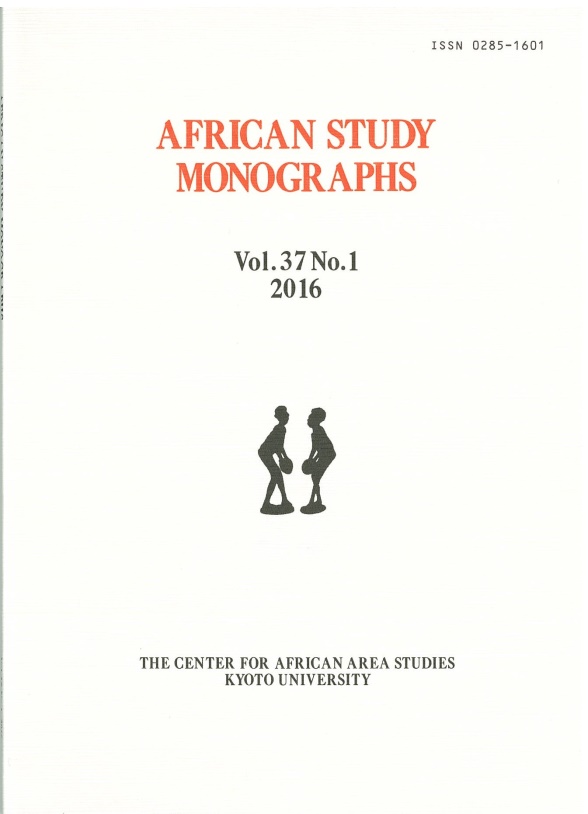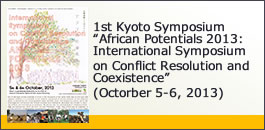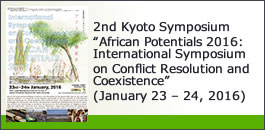Date: February 15, 2012
Venue: Inamori Foundation Memorial Bldg. (Inamori Center), Middle-sized Meeting Room, Kyoto University
Program
“Nigeria: The Post-Amnesty Blues and the Future of Insurgency in the Niger Delta”
Dr. Abdul Raufu Mustapha (Oxford University)
“Boko Haram: The Long Road to Islamic Terrorism”
Dr. Charles Ukeje(Obáfẹmi Awólọwọ University)
Abstract
“Nigeria: The Post-Amnesty Blues and the Future of Insurgency in the Niger Delta”
Dr. Charles Ukeje(Obáfẹmi Awólọwọ University)
Despite its huge hydrocarbon resources, popular struggle to draw attention to the myriad developmental challenges facing the oil region of Nigeria entered a ferocious and vicious phase from the mid-1990s with the emergence of a plethora of armed groups with access to sophisticated weapons and the capability to cripple oil production and undermine national security. These groups launched daring attacks on oil installations, kidnapped oil worker (and also notable individuals), and vandalised oil infrastructure. By 2008-2009, their exploits had crippled oil production to about one-thirds of the country’s daily output of 2.4million barrels.
This was the backdrop against which the Yar’Adua administration, only two years in the saddle, announced presidential amnesty to those involved in perpetrating the heinous crimes if they surrendered their weapons and denounced violence within the 60-day grace period stipulated, starting from June 25, 2009. The government also promised to put the ex-militants, as they are popularly known, into rehabilitation and vocational training schemes that would enhance their seemless re-integration into productive community life.
More than two years after the Amnesty Proclamation, there is enough objective basis to evaluate the post-amnesty achievements and shortcomings, if any, along with the prospects for the future. What, for instance, has happened to the ex-militants in the post-amnesty period? What structures of incentive have been put in place by the government to drive what is widely touted to be an ambitious, even grandiose, idea? And, to what extent have the ex-militants taken advantage of the post-amnesty opportunities? Whereas the post-amnesty phase drastically reduced the spate and intensity of insurgent attacks, to what extent can it pave the way for durable peace and sustainable development in the Niger Delta? Is the amnesty, in fact, not another contrived short-cut to peace in Nigeria’s Delta? What is the role of critical stakeholders, including spoilers, vis-a-vis the implementation of the post-amnesty priorities? Finally, what are the alternative futures for the State, oil companies and local communities in the post-amnesty era; especially against the background of recent developments in the still largely impoverished and volatile oil region?
“Boko Haram: The long road to Islamic Terrorism”
Dr. Abdul Raufu Mustapha (Oxford University)
Since 2009, Nigeria has been rocked by a wave of Islamist insurgency, ostensibly led by the Boko Haram group. According to Human Rights Watch, over 260 people were killed in numerous attacks in January 2012 alone. Predictably, numerous arguments and theories have been advanced to explain the phenomenon of Boko Haram. From conspiracy theories to historical reconstructions, we are faced with numerous and conflicting explanations of a phenomenon that continues to extract a toll in lives and limbs. In this presentation, I address three key questions: Who are Boko Haram? What do they want? How best can Nigeria and the international community address the challenge posed by the organization?


 Exploring African Potentials, Mila Special Issue
Exploring African Potentials, Mila Special Issue
